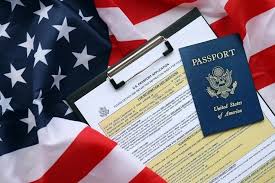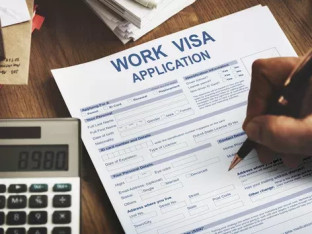Understanding the Importance of Credible Storytelling in Asylum Cases
Applying for asylum is a complex and often daunting process that requires meticulous preparation and attention to detail. One of the fundamental elements that determine the success of an asylum application is credible storytelling. This means that all information provided—whether it relates to dates, locations, or fears of persecution—must be consistent and supported by evidence. In this article, we will explore the critical role of credibility in asylum claims, the necessity for consistency, the types of evidence that bolster a claim, and practical tips to help applicants navigate this challenging process.
The Central Role of Credibility in Asylum Applications
Credibility is the cornerstone of any asylum case. Immigration authorities and courts must assess whether an applicant’s account of persecution or fear is believable and reliable. Unlike other legal proceedings where circumstantial evidence might suffice, asylum cases depend predominantly on the applicant’s ability to present a truthful and consistent narrative. Discrepancies or contradictions—even minor ones—can lead to doubt, undermining the claim and potentially resulting in denial of protection.
The term "credible storytelling" encompasses much more than just recounting events. It involves weaving a coherent and persuasive narrative that aligns precisely with the supporting documentation and country conditions. Every detail, from the timing of events to geographical specifics and personal fears, must harmonize logically. The stakes are exceptionally high, as the outcome directly impacts an individual’s safety and future.
Why Consistency Matters More Than Dramatic Detail
While it may seem natural for applicants to emphasize dramatic or emotional elements to elicit sympathy and support, asylum adjudicators prioritize consistency and factual alignment over embellishments. Introducing exaggerated or contradictory details can damage an applicant’s credibility, no matter how compelling the story might appear emotionally.
Consistency is evaluated across all submitted documents, including written testimonies, applications, affidavits, and oral testimonies during interviews or hearings. The narrative presented must be uniform and free from contradictions because even a single inconsistency can raise suspicion or lead to a negative credibility determination.
Moreover, timing plays an essential role in consistency. Dates and sequences of events should align logically and dovetail with external events when applicable. For example, describing a persecution event before the conflict began in the applicant’s country could severely jeopardize the claim.
Supporting Your Story: Essential Documentation
In asylum cases, credible claims must be substantiated with tangible evidence. While personal testimony carries significant weight, the inclusion of supporting documents enhances the probability of approval. Here are key types of evidence that strengthen an asylum application:
- Proof of threats, such as letters, emails, or recorded messages indicating intimidation or harm.
- Police reports or official complaints documenting attempts to seek protection or record incidents of persecution.
- Medical reports detailing injuries sustained due to violence or persecution.
- Country condition reports or news articles corroborating the political or social situation described.
- Witness statements from family, friends, or other individuals familiar with the applicant’s circumstances.
Possessing multiple, consistent forms of evidence not only supports the applicant’s narrative but also helps to preempt challenges or doubts from immigration officials. It is crucial to organize these documents meticulously and present them in a clear manner during all stages of the application.
The Impact of Contradictions and How to Avoid Them
A single contradiction in an asylum case can carry disproportionate weight and potentially lead to case denial. Such contradictions create doubt about the authenticity of the applicant’s claims and may cause adjudicators to question the entire submission. Understanding common causes of contradictions can help applicants avoid these pitfalls.
Common sources of contradictions include:
- Differences between oral testimony and written statements;
- Inconsistent timing or location details across documents;
- Discrepancies regarding the nature or severity of the persecution experienced;
- Variations in describing fears of return to the country of origin;
- Mismatches between the claimant’s description and supporting evidence or country conditions.
To reduce the risk of contradictions, applicants should carefully review all submissions before finalizing. Working with legal counsel or experienced advisors can be invaluable for ensuring narrative coherence and accuracy.
Best Practices for Preparing Your Asylum Case
Navigating an asylum application requires careful planning. Here are best practices to maximize the chances of a successful outcome:
- Maintain a detailed chronology of relevant events, including dates, locations, and descriptions of threats or violence.
- Gather and securely store all available evidence, such as police reports, medical documents, and communication logs.
- Ensure all written statements and testimonies are consistent, precise, and free from exaggeration.
- Be truthful and transparent about any gaps or uncertainties in the story, explaining them clearly if possible.
- Seek professional legal assistance or consultation to help prepare and review the case thoroughly.
- Stay informed about current country conditions through reliable sources to support your claim.
- Communicate with relevant organizations through official channels for guidance and support.
The Importance of Professional Support for Asylum Seekers
Given the complexity and high stakes of asylum proceedings, accessing proper legal and procedural assistance is crucial. Professional attorneys or accredited representatives can help applicants understand requirements, properly prepare documents, and present claims most effectively. They also assist in identifying and addressing potential inconsistencies or weaknesses in the narrative.
Legal representatives can also provide valuable insight into the latest immigration policies and procedural changes, including those anticipated for the year 2025 and beyond. They can help applicants respond adequately to requests for additional information or evidence and represent them during interviews or hearings.
How to Reach Out for Help
If you or someone you know is preparing an asylum application and requires professional guidance, it is important to connect through trustworthy channels. Many organizations and legal entities provide support through official communication pathways, including:
- Contact information available in the bio section of official web pages or social media platforms;
- Direct private messaging options with recognized experts;
- Official websites offering consultation booking;
- Community support groups and nonprofit organizations specializing in refugee assistance.
It is vital to ensure that communication is secure, confidential, and directed towards reputable sources. Avoid sharing sensitive information on unverified platforms or with uncertified individuals.
Summary and Final Considerations
Successfully navigating the asylum process hinges on an applicant’s ability to present a credible and consistent story corroborated by solid evidence. Every detail matters, and the difference between protection and denial often lies in the precision of dates, locations, and supporting documentation.
Accuracy and thorough preparation are not merely recommended—they are essential. With the right approach and support, applicants can strengthen their chances of securing asylum and obtaining the protection they deserve.
Seeking asylum is a profound and urgent journey that demands honesty, consistency, and solid evidence. Remember that maintaining credibility across all documents and during all stages of the process is essential for survival and protection. If you need assistance, do not hesitate to reach out to qualified professionals through official communication channels to ensure your story is heard and your rights are protected.
Legal Marketplace CONSULTANT specializes in comprehensive legal services for asylum seekers and immigrants worldwide. Our team includes experienced lawyers and consultants dedicated to assisting you through every step of your asylum application with professionalism and care.































